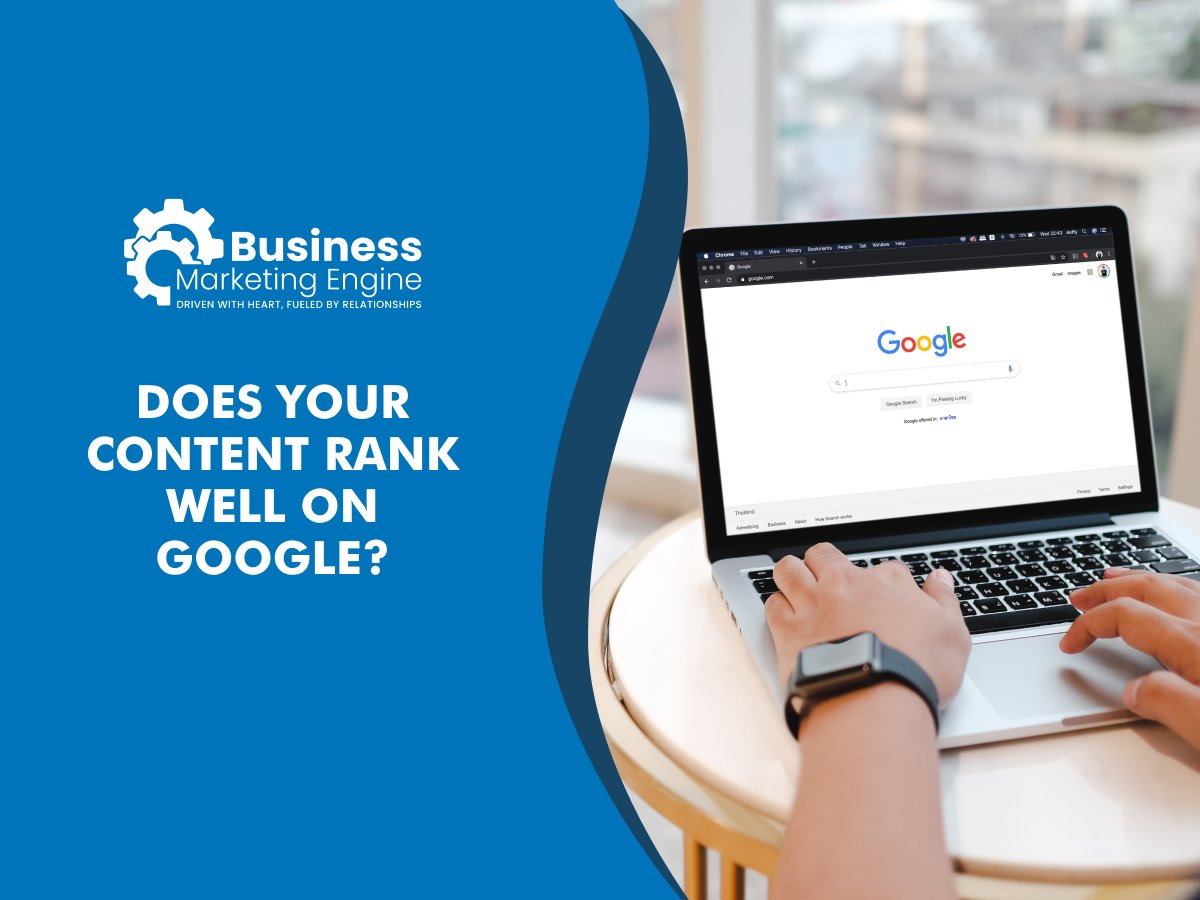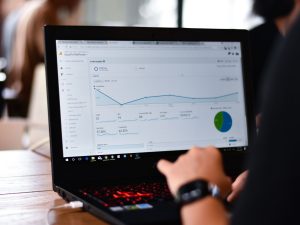Marketing your business is essential for generating quality leads and improving online visibility. Google’s algorithm, however, is constantly changing, and it’s challenging to keep up with all the new ranking factors.
To ensure your content remains at the top of Google’s search results, you must stay informed on the ever-changing ranking factors.
That said, here are 103 of the most important Google ranking factors for 2023:
User Interaction Factors
User interaction, or UI, is becoming increasingly important when optimizing websites for Google rankings. Creating an intuitive and engaging UI allows visitors to stay on your site longer and explore more thoroughly. This helps improve the overall user experience, which can positively impact a site’s ranking in the SERPs.
To improve the user experience with your content, consider these ranking factors:
1. Bounce Rate
Bounce rate measures how quickly people leave your page after visiting it. If your bounce rate is low, visitors engage with your content and enjoy it. There may be a need to assist visitors in finding what they are looking for if bounce rates are high.
2. Click Through Rate for a Keyword
A keyword’s click-through rate (CTR) measures the percentage of people who click on your content after clicking the keyword. A low CTR means that your content is irrelevant to the keyword or unnoticed by the consumer. A high click-through rate indicates that your content is relevant to users’ searches.
3. Direct Traffic
Direct traffic measures the percentage of visitors who reach your website without clicking a link or typing in a URL. Direct traffic is typically associated with repeat visitors, who are more likely to navigate directly to your site.
4. Repeat Traffic
Repeat traffic measures how often visitors return to your website after their original visit. A high percentage of repeat visitors indicates that users find your content valuable and engaging. A low rate may indicate that your content needs to be more compelling to attract them.
5. Pogosticking
Pogosticking is a term used to describe when visitors navigate away from your content to find another site. This usually happens when a user is unsatisfied with the content they found on your page. Pogosticking can also be caused by confusing navigation or needing to know where to go next.
6. Blocked Sites
Users’ security settings or firewalls can block websites. This could mean potential visitors won’t be able to access your website, preventing them from interacting with it.
7. Bookmarks
Bookmarked content also influences your ranking. When someone bookmarks your content, it shows that they found it interesting or valuable. As a result, you will receive more visits and an increased ranking.
8. Blog Comments
The content with the most comments will rank higher on Google’s search results. If visitors leave comments and interact with your blog posts, Google will rank your content higher.
9. Page Time Spent
Page time measures how long visitors spend on your website. The longer visitors spend on your website; the more valuable content becomes to Google. This is because Google wants to ensure its users find what they are looking for as quickly as possible. Therefore, a page with extended time has a greater chance of ranking higher in search engine results pages (SERPs).
At Business Marketing Engine, page time spent is a crucial indicator of quality content. Using our Google ranking strategies, our team can create engaging, influential content that will keep your visitors engaged for longer. From high-quality content pieces to speed optimization, we house various strategies to ensure that your content ranks highly in Google.
The time to act is now.
Unlock the power of high-ranking content with Business Marketing Engine today.
 Domain Ranking Factors
Domain Ranking Factors
Domain ranking factors refer to the various factors that influence how well a domain performs in search engine rankings. These include the age of the domain, domain authority, page speed and the number of backlinks pointing to the website.
To help improve the domain ranking of your website, here are the key ranking factors to consider:
10. Domain Age
Domain age has been a long-argued topic when it comes to ranking factors. However, Google’s very own John Mueller stated that the age of a domain doesn’t give it any inherent advantage.
11. Keyword in a Domain
Having a keyword in your domain is another key factor that can potegive you an advantage in rankings. However, the relevancy of keywords in a field is declining due to their potential abuse by SEO spammers. That said, keywords in your domain only offer the advantage of making it easier for people to remember your website.
12. Domain Length
Long-term domain registrations are more likely to rank higher than short-term registrations. This is because users are more likely to trust a website that has been around longer.
13. Exact Match Domain
An exact match domain, or EMD, is a domain name that matches the search terms people use. EMDs can boost your website’s rankings by highlighting your content’s relevance to the user’s search query. However, there is no need to be evidence to suggest that having an exact match domain will help boost your ranking.
Backlink Factors
Backlinks are essential in SEO because they indicate how authoritative or credible a website is. That said, having high-quality backlinks from reputable sources helps search engines determine the ranking of your website.
To improve your rank on the SERP’s, consider the following backlink ranking factors:
14. Old Domain Links
Backlinks from established domains can be powerful for helping boost your search engine ranking. This is because search engines have already recognized selected domains as credible sources.
15. Number of Referring Domains
Google will likely rank your website highly if you have many referring domains. This is because search engines consider the number of websites linking to your site as a sign of authority.
16. Number of Linking Pages
Your backlink profile is also affected by the number of pages on your website that link to external websites. By having an active website with external sources, Google considers you a reliable source of information.
17. Anchor Text
Anchor text provides the search engine with information about what the page you are linking to is all about. While it’s less important today, including keywords in your anchor text increases the relevance and credibility of your content.
18. Images Alt text
Alt text, or alternative text, appears when an image fails to load or if the user has a visual impairment. By including alt text, you can increase your accessibility, boosting your ranking in the eyes of Google.
19. .edu or .gov Domains
.edu and .gov domains are typically thought to be the highest authority websites on the internet. Google, however, has stated that they are not given any extra authority regarding SEO. Therefore, while these links are considered more credible, having a .edu or .gov domain won’t affect rankings.
20. Referring to Page Authority
If a relevant, authoritative page links your content, it can boost your content’s ranking. This is because search engines trust the page and pass on some of that trust to your content. Therefore, getting links from high-quality websites with strong domain authority is essential.
21. Referring Domain Authority
Like referring page authority, referring domain authority can help your ranking. When a trusted domain links to your content, search engines deem it authoritative.
22. Competitor Links
Competitor links can also play a massive role in your rank, especially if they rank in the same SERP. By having other websites use and trust your content, Google will consider it more authoritative.
23. ”Expected” Authority Sites
While not confirmed, some SEO specialists believe there are specific sites that Google expects to see in your backlink profile. These could include significant industry websites, government organizations, educational institutions and more.
24. Guest Posts
Guest posts are a great way to increase your visibility and gain valuable backlinks from authoritative websites. However, guest posts are not considered as valuable as editorial links. Large-scale guest posting programs can hurt your SEO efforts.
25. Links from Ads
Links from sponsored or paid advertisements are not considered good backlinks. Furthermore, these links have no editorial value and do not provide any real benefit to the page they link to. Paid links should be avoided, as Google can penalize your site for using them.
26. Home Page Links
Backlinks providing value to your home page from other websites are considered good backlinks. Home page links, however, should be natural and not overly promotional.
27. No Follow Links
Links with a rel=”nofollow” HTML tag are called nofollow links. Nofollow links tell search engines to ignore that link. Since nofollow links don’t pass PageRank, they are unlikely to affect search engine rankings. That, however, doesn’t mean that they aren’t recognized.
28. Diversified Links
There need to be several significant links from one source for SEO. You may consider it spam. To ensure your link profile is diverse, you should establish links from different websites. This will make your link profile more trustworthy in the eyes of Google.
29. “rel=sponsored” or “rel=UGC” tags
Links with sponsored tags or UGC (user-generated content) tags are treated differently from other links. That’s because these tags are used to identify links that are paid for or are not editorially controlled. However, while these links may not improve your rankings, they can still improve your visibility and trustworthiness.
30. Contextual Links
Contextual links, or embedded links with surrounding text, are more likely to be natural and trustworthy by Google. In addition to providing readers with more information, these links can boost your SEO efforts.
31. 301 Redirects Links
301 redirects act as a bridge between two pages with different URLs related to the content presented. According to Google Search Central, backlinks from 301 redirects can dilute their link value.
32. Internal Links
Using internal links to guide users through your content can be just as important as any other type of backlink. This is because internal links help search engine crawlers understand the structure and relevance of your content. These links, however, have little impact in terms of rankings.
33. Country-specific Link
Getting backlinks from country-specific websites such as .cn and .de are essential for websites targeting a specific region. These country-specific backlinks will help to ensure that local customers find your website when they search online.
34. Content Link Location
Google puts a greater emphasis on links located at the beginning of content than those in the body. This is because they look at the location of each link and prioritize those near the top.
35. Link Location on a Page
Similar to content link location, different link locations on a page can hold different weights. For example, links placed in the footer of a page are likely to be regarded as less important than others.
36. Page Link Relevancy
A link from a relevant industry or niche holds significantly more weight than an unrelated link. In other words, if a link has similar content or keywords to yours, Google considers it more valuable.
37. Keyword in a Title
In Google’s algorithm, links from pages whose titles contain your page’s keyword are ranked significantly higher. This is because Google considers this a sign of relevancy and trustworthiness.
38. Positive and Negative Link Velocity
Link velocity is the rate at which you gain links. If you have a positive link velocity, it means your content is gaining popularity. On the other hand, having a negative link velocity implies that your content is losing popularity.
39. Authority Sites Links
It is getting links from authoritative sites holds more weight than links from non-authoritative sites. This is because Google considers authoritative sites more reliable, favoring them in search engine results.
40. Wiki Links
While Wikipedia links are considered nofollow, they are still a great way to discover your website. Wikipedia links can increase your visibility on the web and help search engines better understand your site’s context.
41. Link Co-occurrences
Co-occurrences, or the words that appear around your backlinks, can additionally impact your search engine rankings. This is because these words provide additional context and relevance to the link, which helps Google understand your content better.
42. Link Age
According to Google, the linkage is a sign of trust. Therefore, older links are considered higher quality due to their longevity and established trust.
43. Links from “Real” Sites
With the advent of “fake” blogs, Google had to find a way to distinguish between fake and real links. As a result, Google now favors sites with an established user interaction history.
44. Organic Link Profile
Links from organic link profiles come from websites whose content naturally links back to them. It is believed that links acquired through link buying, exchanging and link manipulation are more genuine than those obtained through link buying or trading.
45. Reciprocal Links
Reciprocal links are when two websites agree to link to each other. This form of linking was commonly used in the early days of search engine optimization. Since then, Google has cracked down on this practice as spam.
46. 301 Links
301 links are redirects that direct visitors from a non-preferred URL to a preferred URL. This is often used when websites are redesigned and the URLs of specific pages are changed. Luckily, 301 links are considered acceptable for SEO, as Google understands that sites change over time.
47. Schema.org Usage
A schema.org code is a type of code that can be used to help optimize your website for Google ranking. That said, Google is more likely to rank higher content that has a schema.org code. By adding structured data to your web pages, you are telling Google what the content is about.
48. Trust Rank
Trust rank is a measure of a website’s trustworthiness. That said, how much “TrustRank” you receive depends on the site’s linkability.
49. # of Outbound Links
Outbound links are links that point from one website to another. Too many outbound links on a page can be seen as a sign of low quality. Search engines prefer pages with fewer, more relevant outbound links.
50. Content quality of Linking Sites
Backlinks from websites that contain high-quality, relevant content are seen as more valuable than links from low-quality websites. That said, the websites linking to you must provide relevant, high-quality content.
At Business Marketing Engine, we help businesses rank higher in search engines so customers can easily find them. Our team will help you climb the rankings from data-driven keyword research to link building.
With our expertise in search engine optimization, you can be sure that your website will gain visibility with potential customers. Contact our team today to maximize your website’s presence on the SERPs. We would be happy to answer any questions you may have.
 Page-Level Factors
Page-Level Factors
Page-level factors are elements that can be managed directly. In other words, these factors are under your control.
By optimizing your page-level factors, you can help Google better understand what your content is about, therefore improving its ranking.
To help you improve the ranking of your content, consider the following page-level factors:
51. Title Tag Keyword
Title tags are clickable headlines that appear in search results. A good title tag should include the relevant keyword(s) and accurately reflect what visitors can expect to find on your page. By optimizing title tags, you can ensure they stand out in SERPs, thus improving your content’s visibility and click-through rate.
52. Title tag that starts with the Keyword
While title tags that include a keyword are important, titles that start with the keyword tend to perform even better. This is because search engines often prioritize titles that begin with a keyword when displaying content in SERPs.
53. Meta Description Keyword
While Google doesn’t use the meta description tag as a ranking signal, your meta description should contain a keyword. This is because it can gain interest and help improve other ranking factors, such as the click-through rate.
54. H1 Tag Keyword
H1 tags are secondary title tags that provide alternative title information for a page. Including the keyword in your H1 tag can help improve relevancy and other ranking factors.
55. Content # of Words
The number of words used in your content is an important ranking factor for Google and other search engines. This is because longer content tends to cover the topic more thoroughly and provide more value to the user.
56. Linked Table of Content
Including a table of contents in your content can improve user experience and increase the time spent on the page. It also gives search engine crawlers an easier way to index content, which can result in better rankings.
57. Latent Semantic Index Keywords (LSI)
Latent semantic keywords, or LSI, are words used in the body of content related to the main keyword. Including LSI keywords in your content can help search engines understand the context of your content. As a result, you can rank for a broader range of keywords.
58. LSI in Title and Description
Since LSI keywords are related to your content, you should include them in your page’s title and meta description. This lets Google know what kind of information users can expect when they view your page. It also helps Google discern between different types of pages that might be similar in content.
59. Depth of Topic
The topic of your content can have a significant impact on its success. When creating content, be sure to cover the subject in depth. This helps search engines understand your page better and can help it rank higher for relevant terms.
60. Page Loading Speed
The speed of your page is another essential factor in its success. Ensure your loading speeds are optimized for a good user experience and higher ranking. Visitors may get frustrated and leave before seeing your content if a page takes too long to load.
61. Duplicate Content
Duplicate content, or content that slightly matches another piece of content from the same source, is not favored by Google. Duplicate content can result in a negative ranking from Google.
62. Optimized Image
Make sure you optimize any images you use on your website. Compressing the image for quick loading, using alt text, and providing a descriptive title will help improve your ranking.
63. Content Updates
Google likes fresh content, so it’s vital to ensure that the content on your website is frequently updated. This doesn’t mean you must completely rewrite your existing content. Instead, try to swap out one or two paragraphs with new information and keep the rest of the text unchanged. Doing this will help Google recognize that your website is constantly evolving and active.
64. Historical Pages
Content updates are just one of the factors Google takes into account when evaluating your website. The frequency at which you update your content also matters. To this end, ensure that your content is fresh, relevant and up-to-date.
65. Keyword in the first 100 Words
Another critical factor to consider when optimizing your website is putting keywords within the first 100 words of each page. Doing so is directly correlated with higher rankings in Google.
66. H2, H3, H4 Tags
H2, H3 and H4 are title tags that divide your content into logical sections. Using keywords in these tags allows Google to understand the content of your page better and determine its relevance.
67. Outbound Link Quality
While linking back to your own content is important, it’s equally beneficial to include high-quality outbound links. This helps Google better comprehend the topic and shows that you’re providing your audience with helpful information.
68. Outbound Link Relevancy
While using outbound links, ensure you are linking to content that is relevant to the topic at hand. By doing this, Google can better understand how your page relates to a search query and improve your rankings. If you link to irrelevant content or websites, it is likely to harm your performance.
69. Content Grammar/Spelling
While it is still being determined whether Google pays attention to grammar/spelling, providing error-free content is essential. Content that is poorly written or spelled can deter visitors and confuse Google, affecting your backlinks, CTR, and more.
70. Mobile-friendliness
In the age of mobile technology, making sure your website is mobile-friendly is essential. This includes ensuring that the text and images are legible and that the page loads quickly. Google will likely reward mobile-friendly sites, which indicates that you are providing a good user experience.
71. Supplementary Tools Content
Supplementary content, such as quizzes and calculators can be used to enhance the user experience. In fact, according to the official Google Ratings Guidelines, supplementary content is taken into deep consideration during the ranking process.
72. Images, Videos and other Media
Like supplementary content, images, video and other media types can also be used to improve the user experience.
73. More number of Internal Links
The number of internal links on a page indicates that it is helpful and comprehensive. Therefore, Google uses this to help evaluate a website’s relevance and quality.
74. Broken Links
While it’s bound to happen, broken links can significantly hinder your website’s ranking. If Google finds too many broken links on a page, they will consider your content abandoned and irrelevant.
75. Reading Level
The reading level of your content has long been an important factor in ranking. Therefore, if your content is too difficult to read, it won’t rank as high as more easy-to-read content. Instead, aim for an optimal readability score by using shorter sentences, clear language and avoiding complex jargon.
76. Affiliate Links
An affiliate link is a link to a third-party website where you earn money if someone makes a purchase. While Google doesn’t see any harm in affiliate links, they must not be overused. If a website is filled with too many affiliate links, it could be considered spam and hurt your ranking.
77. HTML Errors
According to Google, HTML errors can signify a poorly optimized page or even a hacked website. Because of this, Google will likely lower your rankings if it spots too many HTML errors.
78. Domain Authority
Authority plays a considerable role in determining how well a website ranks. Therefore, a page on an authoritative domain is likely to rank higher than one without authority.
79. URL Path
Like a house, the architecture of a website can affect how easily people can find its content. That said, pages closer to the homepage (as in, their URL path is shorter) tend to rank better.
80. Non-AI Editors
Despite not being confirmed, many SEO specialists believe that Google filed a patent that allows human editors to influence SERPs.
81. Page Category
How you categorize web pages can significantly affect your rankings. For example, pages listed in specific categories rank better than those listed in unrelated categories.
82. URL Keywords
While the boost is relatively small, according to Google, having a keyword-rich URL can help boost your rankings.
83. URL String
A URL string is a combination of words that appear after the domain name in a URL. Including relevant keywords in the URL string can help boost your website’s understanding, relevance, and trustworthiness.
84. References
Inbound links from trustworthy, reputable sources enhance rankings, despite Google’s denial. This is because inbound links help Google to determine your site’s relevance and authority.
85. Bulleted/Numbered List
Bulleted or numbered lists help readers quickly scan through and understand the content of your website. Not only do these lists help break up the text, but they make your content easier to read and digest. As a result, users will likely stay on your page longer, increasing your ranking.
86. Too Many Outbound Links
Outbound links are a great way to give your readers more information. Too many links can make your content look disorganized and unprofessional. Try to be selective with the outbound links you include and only link to websites related to your topic.
87. UX Signals From Other Ranking Keywords
When creating content for your website, it’s essential to consider how it will rank for other keywords. By including other ranking keywords in your content, Google can determine whether your content is relevant.
88. Quality and Useful Content
While not confirmed, many SEO specialists believe that Google’s algorithm rewards quality and useful content differently. Users typically favor content that’s easy to read, contains useful information, and provides value.
Site-Level Factors
Site-level factors refer to how Google interprets the overall site structure and content and its general usability. For example, well-organized and easy-to-navigate websites rank higher in search engine results than poorly designed or disorganized ones.
To improve your website’s ranking, consider the following factors:
89. Contact Us Page
Google favors high-quality user experience. Therefore, websites with an easily accessible contact page are viewed more favorably by the search engine. Furthermore, ensure that your contact information matches all your content.
90. Domain Trust/TrustRank
While never confirmed, many SEO specialists believe that trust rank is massively essential in the ranking algorithm. This is especially true when it comes to the trustworthiness of your domain.
91. Site Architecture
The architecture of your website is one of the most crucial ranking factors. This is because it directly affects how easily and quickly search engines can crawl and index your content.
92. Site Updates
Despite Google’s denial that the frequency of updates affects rankings, regular content updates are beneficial. This is because new content signals to search engines that your website is active and relevant.
93. Sitemap
Sitemaps are organization tools that help search engines understand the structure of your website. Despite Google’s claim that they are not ranking factors, they can still help index your content correctly.
94. E-A-T- “Expertise, Authoritativeness, Trustworthiness”
Expertise, authoritativeness and trustworthiness (E-A-T) are all factors that search engines consider when determining a website’s quality. Google has said that E-A-T will continue to be an area of focus for their algorithm.
95. Duplicate Meta Information
Duplicate meta information can confuse Google and hurt your SEO efforts. That said, ensure that all of your meta titles, descriptions, tags and other information are unique. As a result, Google will be able to identify each page correctly. Furthermore, Google will be able to group similar pages and rank them higher. This will help your website gain more visibility in search results.
96. Breadcrumb Navigation
Breadcrumb navigation is an essential tool for website usability, allowing users to quickly and easily navigate a website. Using these features can improve SEO efforts since they assist Google in identifying a website’s structure.
97. User Reviews
Since Google often indexes user reviews, they can increase the visibility of a website in organic search results.
Brand Signals
Brand signals are important for SEO, as Google uses them to determine a website’s authority and trustworthiness. Brand signals can significantly boost your ranking from appearing on popular industry forums to having a verified social media presence.
To help boost your ranking with brand signals, consider the following ranking factors:
98. Branded Anchor Text
Search engines use branded anchor text to determine the relevance of a website to its industry when measuring SEO. Adding relevant and descriptive branded anchor text can boost your website’s authority.
99. Branded Searches
A branded search is any query containing the name of a company, product, or service. For SEO purposes, branded searches are important because they help demonstrate the popularity of your brand and its relevance. This shows Google that you are an authoritative source and increases your rankings in organic results.
100. Facebook Pages With Lots of Likes
Having a well-liked Facebook page can also affect your website’s ranking. This is because Google considers how many likes a page has when calculating its relevance. In other words, positive feedback can demonstrate trustworthiness and quality.
101. Twitter Profiles With a Lot of Followers
Search engine results often favor brands with a high number of followers on Twitter. This is because popular Twitter accounts indicate the relevance and popularity of a brand.
102. Linkedin Company Page
A LinkedIn business page is an easy way to show that your business is legitimate. As such, it will likely boost your content in the SERPs.
103. Verified Online Profiles
According to Google CEO Eric Schmidt, verifying online profiles will boost your website’s SEO rankings. This is because verified accounts show that you are a credible business and active in the online space.
Thus, if you haven’t already, get involved in social media. Presenting yourself as an active and reputable business online will improve your website’s visibility. Furthermore, having an active presence on social media can help you build relationships with potential customers.
Nevertheless, it requires patience and consistency to produce quality content consistently. Luckily, you are not alone in this endeavor.
At Business Marketing Engine, our SEO specialists understand the complexities of Google’s ranking algorithms. Using techniques including social media consistency, keyword research, website optimization and more, we easily improve your search engine rankings.
Moreover, we’ll monitor your performance to ensure you stay ahead of the competition. So when we need to shift alongside Google’s ever-changing ranking factors, rest assured that we’re already one step ahead.
Let’s get started, shall we?
Contact, Business Marketing Engine today and start climbing the ranks of Google’s search engine results pages.

 Domain Ranking Factors
Domain Ranking Factors Page-Level Factors
Page-Level Factors



